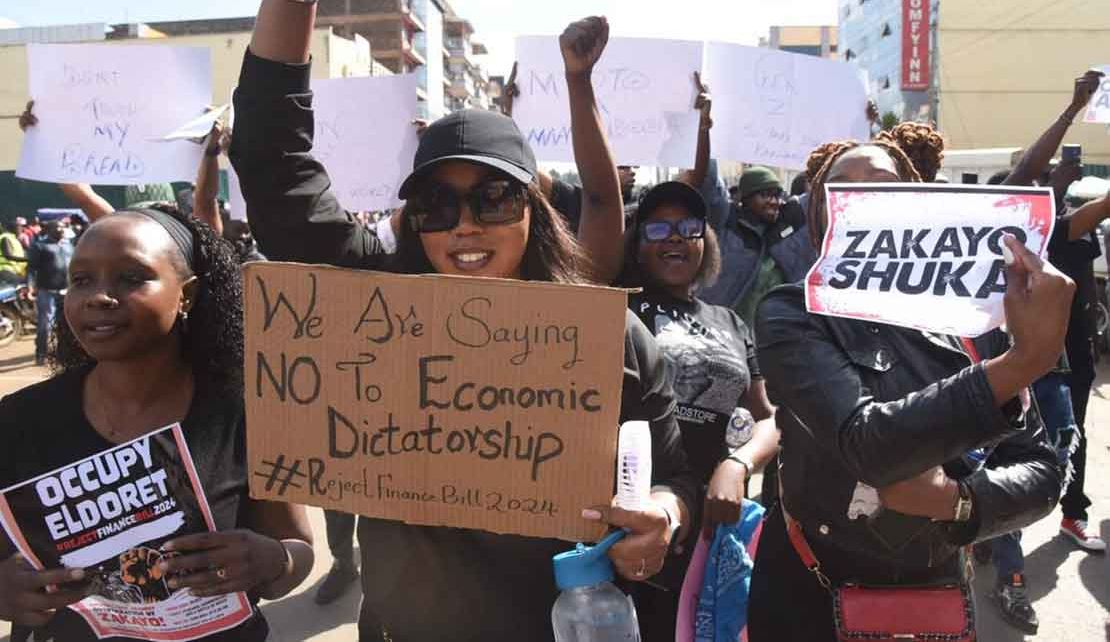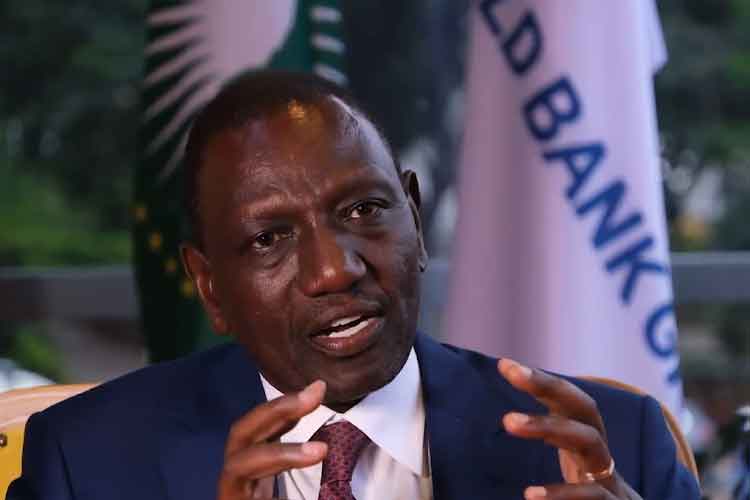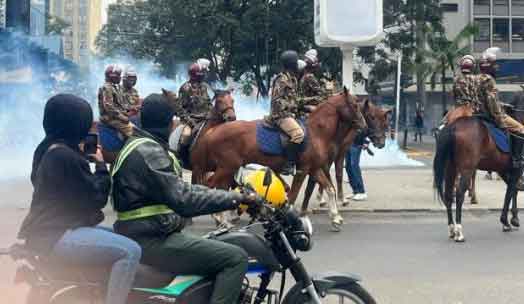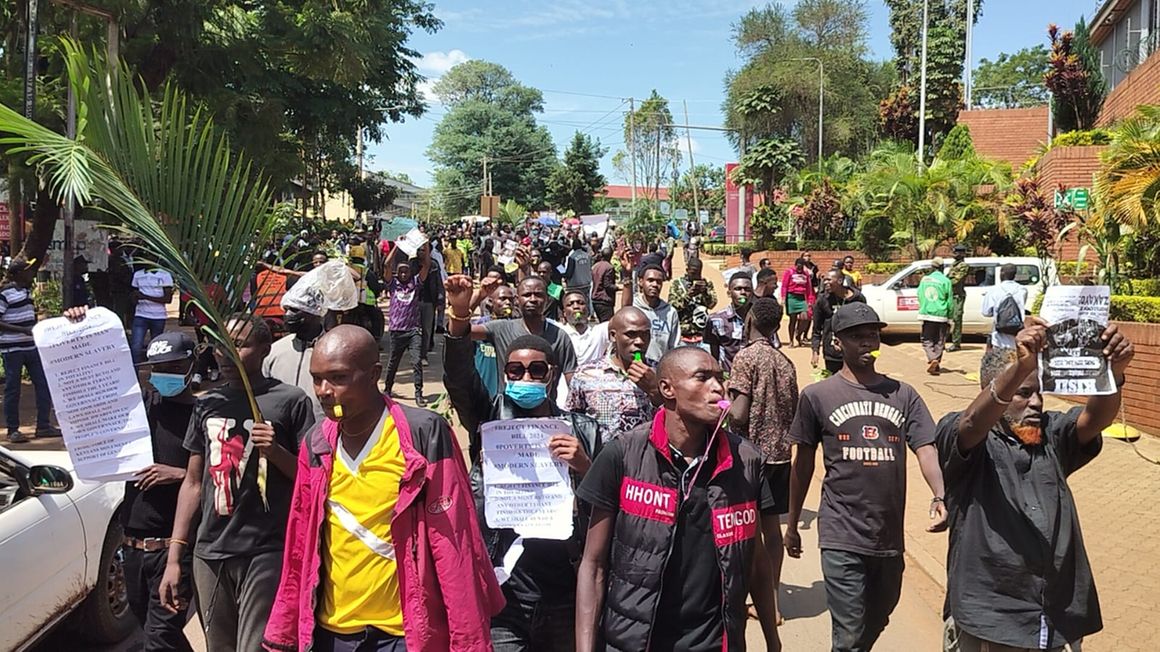KENYA | Widespread protests erupt in Kenya as Rhuto faces strong opposition to his Ksh3.9 trillion-budget

NAIROBI, Kenya, June 20, 2024 - President William Ruto's plan to finance his Ksh3.9 trillion ($31 billion) Budget is facing strong opposition, as Anti-Finance Bill protests have erupted across Kenya.

In Nairobi, protesters returned to the streets on Thursday morning after a brief 24-hour break. The demonstrations were met with armed police, who fired teargas to disperse the crowds. Anti-riot police engaged with youthful demonstrators attempting to access Parliament Buildings, blocking several roads to ensure no civilians could enter.
Similar protests were witnessed in other cities and towns, including Kisumu, Lodwar, Kakamega, Kisii, Nakuru, Eldoret, Nyeri, Meru, Nanyuki, Mombasa, and Kilifi. The protesters, who had earlier forced Dr. Ruto to backtrack on some tax measures, are now demanding the complete rejection of the bill by members of Parliament. Chants of “Don’t Amend, Reject! Ruto Must Go!” echoed through Nairobi’s Central Business District as demonstrators clashed with police.
In Eldoret, President Ruto's hometown, thousands of protesters took to the streets, bringing business in the town to a standstill. The turnout was comparable to the crowds that celebrated Ruto’s 2022 election win and his subsequent inauguration. Demonstrators expressed their support for rejecting the Finance Bill 2024 and called for an end to punitive taxes proposed by the Kenya Kwanza administration.
 In Kilifi County, thousands of youths added their voices to the nationwide outcry against the Finance Bill 2024. The protests, which initially started with students from Pwani University, quickly grew as residents and boda boda riders joined the march.
In Kilifi County, thousands of youths added their voices to the nationwide outcry against the Finance Bill 2024. The protests, which initially started with students from Pwani University, quickly grew as residents and boda boda riders joined the march.
Dressed in black outfits, the protesters crisscrossed the streets, bringing business activities to a halt. They made stops at significant locations, including the Kilifi Huduma Centre and the governor’s office, emphasizing their opposition to the bill and the current administration.
The situation in other regions varied. In Voi, Taita Taveta County, planned protests did not gain the expected momentum. Although a group of youths showed up, the demonstration was short-lived due to the lack of additional supporters.
Meanwhile, law enforcement officers patrolled the area to prevent any potential lawlessness. In Kisumu, the protests turned violent as demonstrators engaged police in running battles, leading to the use of tear gas to disperse the crowds. The protests began early at Kondele Roundabout and disrupted traffic as they moved through the central business district.

In Nakuru and Embu, the protests continued with hundreds of residents taking to the streets. The demonstrators in Nakuru demanded that MPs reject the Finance Bill during the upcoming session. In Embu, protesters accused the government of oppressing Kenyans with high taxes amid a rising cost of living. Shouts of "Ruto must go!" resonated as they disrupted transport in the busy town, vowing to persist in their protests until their demands are met.
With the nation in upheaval, President Ruto faces mounting pressure to withdraw his Ksh3.9 trillion Budget and reconsider his plans to finance it. The widespread and organized protests indicate a significant level of public dissent, posing a serious challenge to his administration.
The East African publication reported that the majority of the protesters across the country were from Generation Z, with a significant number of millennials joining in. These youthful demonstrators organized themselves into groups, waving protest placards and chanting anti-Finance Bill and anti-Ruto slogans. The organized nature of the protests underscores the depth of dissatisfaction with the current administration's fiscal policies.

As the protests spread, the government's response has been to maintain a strong police presence to manage the demonstrations. However, the peaceful nature of most protests suggests that the demonstrators are committed to voicing their opposition without resorting to violence. This widespread civil unrest indicates a growing impatience with President Ruto's administration and a clear message from the public demanding significant changes in governance and economic policies.
The unrest and demands of the protesters present a critical juncture for President Ruto. The large-scale demonstrations reflect deep-rooted frustrations among Kenyans who are grappling with a high cost of living and what they perceive as punitive taxation measures. The pressure on President Ruto to withdraw the Finance Bill and revise the Budget is immense, and failure to address these concerns could lead to further political instability.
If President Ruto does not heed the call to withdraw his Ksh3.9 trillion Budget and reassess his financing plans, he risks not only further protests but also a significant loss of public trust and political capital. The ongoing demonstrations serve as a stark reminder of the power of public opinion and the critical need for responsive and inclusive governance.
